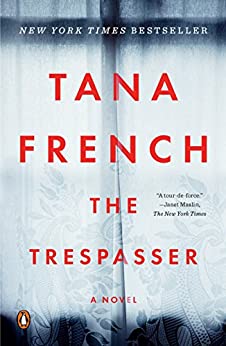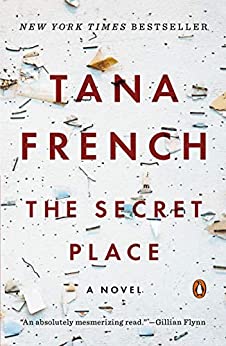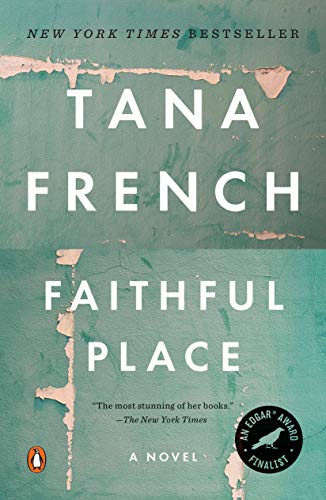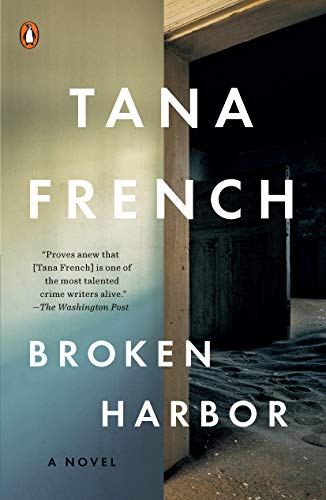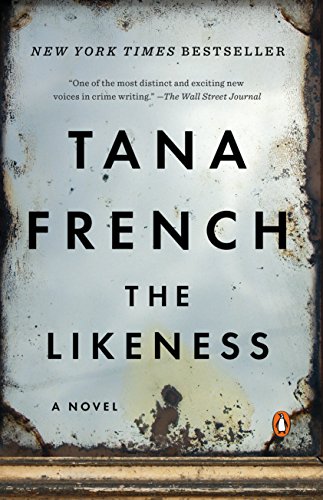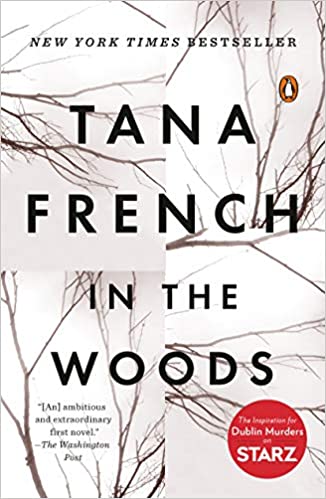Electric Lit relies on contributions from our readers to help make literature more exciting, relevant, and inclusive. Please support our work by becoming a member today, or making a one-time donation here.
.
In the thirteen years since Tana French published her first novel, she’s gained a rabid and dedicated readership (a friend of mine refers to herself as a Tanavangelist), a shelf’s worth of awards (Edgar, Anthony, Macavity, Barry, and the Irish Book Award, among others), and countless places on critic’s picks and best of the year lists. And for good reason: French is a triple threat. She writes strikingly beautiful prose that avoids getting bogged down in its own musicality, creates atmosphere so three-dimensional you feel you could sink into it like a bath, and crafts deft, innovative plots that surprise readers of mysteries, thrillers, and literary fiction alike.
These are, in the narrowest sense, detective novels: six entries in the Dublin Murder Squad series, focusing on investigators in the eponymous (purely fictional) police unit, and two standalone novels that are also about unsolved deaths. (Presciently, French stopped making professional detectives her central characters in 2018, just as white people were broadly catching on that in real life, the police were not the heroes.) But beyond mysteries and motives, you’re likely to encounter protagonists grappling with personal trauma and thorny ethical questions, a three-dimensional supporting cast, a tremendously powerful sense of place (see the house in The Likeness, the grove in The Secret Place, the wild Irish landscape in The Searcher), and luminously descriptive writing. There’s also the series storytelling mechanic French uses in the Dublin Murder Squad novels, brilliant in its simplicity, where the protagonist of every novel was a supporting character in a previous one, which keeps the series from stagnating.
The fact of the matter is that Tana French has never written a bad book. Even the worst of her output is worth your time, and every one of her eight novels has transcendent moments. But given that all things are, in fact, relative, some of them have to be better than others, and so I’m here to offer you the definitive Tana French ranking. I will not be taking questions.
I’ll preface my official ranking by telling you that there’s really no wrong reading order for these books. Publication order is easiest, because chronologically, the six Dublin Murder Squad books come first, followed by her two standalones. But if you have a more, shall we say, chaotic energy, just pick the one that piques your interest most and dive in. (One caveat to this: in my opinion, The Likeness should only be read directly after In The Woods, as the respective protagonists have the most immediate connection to each other of any of French’s characters, and there are pieces of Cassie’s narrative in The Likeness that won’t make sense without the context of her relationship with Rob in In The Woods. Or read The Likeness before In The Woods! Do you, I don’t know your life.)
8. The Trespasser (2016)
As I said above, French has never written a bad novel, and The Trespasser would be a notable accomplishment in the hands of a lesser writer, but as it stands among her other books, it’s an enjoyable read that doesn’t leave much of an impression. Antoinette Conway, who is Stephen Moran’s partner in The Secret Place, is a fine and interesting protagonist—cagey, angry, smart, overburdened with trust issues—but her psychological baggage and internal monologue don’t have quite the impact of, say, a Frank Mackey or a Cassie Maddox. If you like a relatively straightforward police procedural (albeit one that focuses pretty heavily on squad politics, corruption, and deconstructing the police narrative around what seems like a clear-cut case of domestic homicide), you’ll probably like this one just fine, but if you want a little something more from your mysteries, start elsewhere.
7. The Secret Place (2014)
This is the novel that saw French start to broaden her horizons past telling stories from the police perspective. The Secret Place features multiple narrators: Stephen Moran, a detective previously featured in Faithful Place, and several of the students of St. Kilda’s boarding school, most notably Holly Mackey, the teenage daughter of Frank Mackey (the narrator of Faithful Place). Holly spots what appears to be a clue to the unsolved murder of a teenage boy and brings it to Moran and his partner, Antoinette Conway. As Moran and Conway interview students and faculty at the school, French delves into nuanced explorations of class, gender, and age. There’s a lot that’s good here: the climactic interrogation scene is near-virtuosic in its plotting and execution, and the novel is extraordinarily insightful about the heightened experience of being a teenage girl, from the breathtaking cruelty to the intense friendships. But the teenage dialogue often doesn’t quite work, and ultimately the novel leans a little too hard into the suggestion of extramundane forces to totally stick the landing.
6. Faithful Place (2010)
If The Secret Place comes a little too close to fabulism, Faithful Place lands at the other end of the spectrum, solidly in the realm of concrete, mundane tragedies. Frank Mackey (Cassie’s mentor in The Likeness) has long kept a healthy separation between himself and his troubled, working class family. But when a body found in the neighborhood where he grew up turns out to be the girlfriend he thought abandoned him at 19, Mackey is forced to reexamine and reframe the experiences that shaped him. Excluded from the official proceedings due to his proximity to the case, Mackey undertakes his own guerilla investigation, and in doing so plunges himself back into his fraught family history. It makes for an immensely compelling character study, and as always, French’s writing is superb, but the resolution of the mystery is just a touch too obvious to be completely satisfying.
5. The Searcher (2020)
French’s latest novel is a standalone, and her first book to feature a non-Irish protagonist. Unmoored by the dissolution of his marriage, his distant daughter, and his retirement from the Chicago police force, Cal Hooper moves to the rural town of Ardnakelty in western Ireland, where he plans to spend his days fishing and renovating the old house he’s bought. But when Trey, a local teenager from a family with a bad reputation, befriends him and asks for help in finding a missing sibling, Cal is drawn unprepared into a web of secrets in the tight-knit community, which harbors more malevolence than he expects. French nails the elegiac tone of a certain kind of Western, and there’s an appealing stillness to Cal: he’s contemplative, but not complacent; introspective without being inactive. As he comes to care about Trey, and as he reckons with the limitations of policing as an institution, Cal finds himself being both overtly and subtly warned away from his ad hoc investigation, which only makes him more determined. Story is not the driving factor in this book—in fact, the plot is somewhat spare compared to the rest of French’s novels—but it’s by design, as the focus here is on character and atmosphere.
4. The Witch Elm (2018)
French’s first standalone novel is a frighteningly timely account of a young white man learning that he is not, in fact, the main character of the universe, and that all the events in his easy life that he’s previously attributed to “luck” were actually the result of what the rest of us would call “privilege.” After Toby is beaten badly and left for dead during a home invasion, he retreats to his uncle’s beautiful suburban home to recover, suffering cognitive issues and confusion alongside PTSD. There, he reconnects with the two cousins he grew up with, and when a gruesome discovery is made in the house’s backyard, Toby discovers that nothing he’s ever understood or believed about his life is what it seemed. French excels at unpacking a character’s psyche as they’re forced to recontextualize their own experiences, and it’s a nice little spin on the trope of the unreliable narrator. The Witch Elm moves a bit slowly in the first third, which can make it tricky to get into if you’re not already enamored of French’s writing, but it’s worth it.
3. Broken Harbor (2012)
This tragic and unexpectedly scary book is the closest thing French has written to a full-blown haunted house novel, and it’s the kind of novel that sticks with you. Scorcher Kennedy, who appeared in Faithful Place, is the confident, stalwart detective assigned to a tragic crime: Patrick Spain and his two children are dead, and Jennifer, his wife, is in the hospital in critical condition. The family were living in a half-empty housing development abandoned during the economic crash, burdened with financial concerns after Patrick’s layoff, and marinating in burgeoning mental health crises. Patrick, convinced of the presence of some kind of wild animal in the house, has taken to posting increasingly unhinged statements on message boards and knocking holes in the wall; Jennifer, meanwhile, is trying her best to hold the family together. Kennedy has his own personal problems, including latent trauma from the death of his mother and a sister who’s dealing with the decompensation of her own mental health, not to mention responsibility for Richie, the rookie cop he’s been assigned to train. As the book progresses, Kennedy’s mindset (and his relationship with Richie) shift drastically, and he ends up compromising his own values in devastating ways. Broken Harbor is a brilliant exploration of the profound psychological effect a national economic collapse can have on an individual family.
2. The Likeness (2008)
My personal favorite Tana French novel, The Likeness absolutely drips with gothic atmosphere. When a university student is found murdered, Cassie Maddox, Rob’s partner from In The Woods, is called in—not to investigate, not at first, but because the murdered woman could be her twin. Frank Mackey, her former mentor, asks Cassie to go undercover as Lexie, the victim, and embed herself with Lexie’s housemates, all of whom are suspects. The tension of Cassie’s attempts to navigate this insular group is exquisite, and as she develops her own individual relationships with the suspects, bumping around in isolation in their once-grand house, her sense of self starts to slip, bit by bit. The setting is lush and evocative, and Cassie is a compelling character (as is, we come to find out, Lexie). I’ve seen criticism that it’s too much to swallow that Cassie and Lexie could pass for one another, but most of French’s novels––hell, most mystery novels in general––require the reader to take a leap of faith. It’s just a little more central in this story than in some of the others, and if ever there were a book worth suspending your disbelief for, it’s this one.
1. In The Woods (2007)
I can’t imagine anyone familiar with French’s oeuvre is surprised that In The Woods—her debut novel!—still ranks as her best work to date. It’s a stone-cold stunner of a book, audacious, beautiful, and entirely confident in itself. When Rob Ryan was a kid, he went into the woods behind his housing estate with his two best friends. His friends were never found, but Rob was, trembling against a tree with cuts on his back and shoes soaked with someone else’s blood. He’s never been able to recover the memories of what happened that day, and when, as a detective, he’s called to investigate the murder of a young girl in those same woods, he conceals his conflict of interest, because he has to know.
Rob is the best of French’s unreliable narrators, and you know from the outset that he’s a bit of a shit. He’s a good detective and his working relationship with his partner Cassie is a thing of beauty, but his psyche is an absolute tire fire, a tangle of guilt, anger, and fear which French delves into with such gusto that it’s impossible not to get sucked in.
In The Woods is by turns terrifying, heartbreaking, frustrating, and melancholy, and its impact on the mystery genre can’t be overstated. And though she hasn’t topped it yet, I have no doubt that if anybody can, it’s Tana French.

